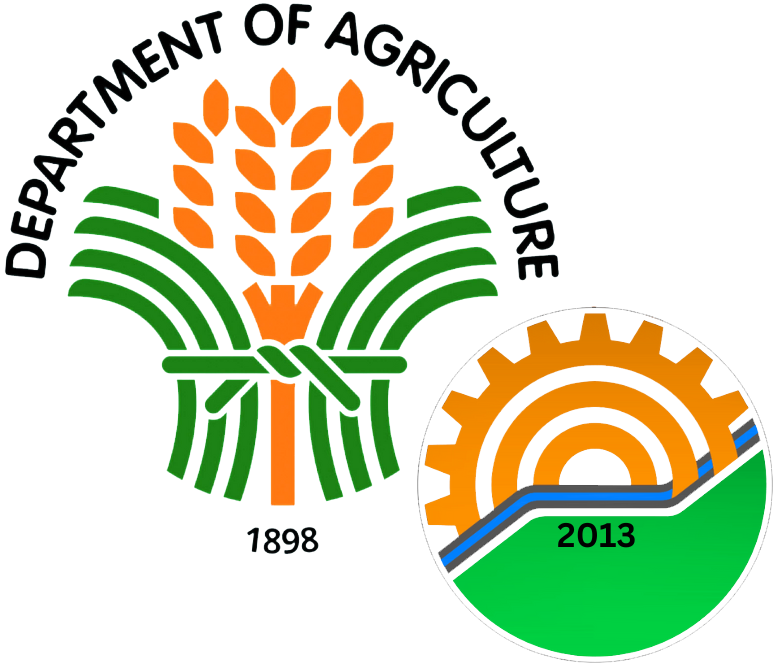Despite the continuing global fight against the coronavirus disease, the Department of Agriculture – Bureau of Agricultural and Fisheries Engineering (DA-BAFE) and the Institute of Agricultural Machinery – National Agriculture and Food Research Organization (IAM-NARO) are pursuing their cooperation to promote sustainable agricultural mechanization in the Philippines and Japan.
IAM-NARO of Japan and DA-BAFE has entered into MOU to have technical partnership and cooperation in the field of agricultural mechanization, Agriculture Secretary William D. Dar said in a recorded video message in a virtual activity organized by DA-BAFE.

The MOU aims to strengthen existing friendly relations between the Philippines and Japan by encouraging IAM-NARO and DA-BAFE to cooperate with each other in conducting activities that will promote sustainable agricultural mechanization in the two countries, explained Sec. Dar in his welcome remarks at the Webinar on Initiatives for the Sustainable Agricultural Mechanization Beyond COVID-19 Pandemic on March 24, 2021.
With the said partnership, Secretary Dar congratulated DA-BAFE “for leading and conducting the virtual activity where participants learn about agricultural mechanization amid the COVID-19 pandemic.” The agriculture chief looks forward to seeing more partnerships as the country faces growing challenges of ensuring food security during this pandemic situation.
First Secretary and Agriculture attache of the Embassy of Japan, Mr. Jumpei Tachikawa, said the implementation of the Memorandum of Understanding (MOU) signed three years ago between Japan and the Philippines may have been hampered by COVID-19, the situation further motivated both parties to exert their best efforts to achieve the overall objective which is cooperation.
Mr. Tachikawa expressed the Japanese government’s excitement to work with Filipino partners and “trust that the collaboration will pave the way for the development of the farm industry as well as promote the longstanding bilateral relationship between Japan and the Philippines.”
Overcoming the COVID-19 pandemic is the urgent issue facing humanity and agricultural engineers must contribute to resolving the issue using available knowledge and latest technology, Engr. Takashi Fujimori, Administrator of Japan’s Institute of Agricultural Machinery – National Agriculture and Food Research Organization (IAM – NARO) said in his opening remarks during the webinar organized by DA-BAFE.
Engr. Fujimori encouraged the sharing of information and opinions through the webinars that focus on various topics regarding mechanization. Engr. Fujimori who will be leaving his post in NARO by the end of March remarked, “I sincerely hope that our cooperation will continue and bear good fruit.”
Engr. Janice Vargas, Chief of DA-BAFE’s Standards Regulation and Enforcement Division (SRED), provided an overview of the program implementation since the MOU was handed over by IAM-NARO to DA on March 21, 2019 up to the present.
Technical information exchanges were conducted in the areas of testing and evaluation of machinery, farm equipment safety and ergonomics, agricultural mechanization policy formulation and other related areas, said Engr. Vargas. This webinar is one of the activities conducted to facilitate sharing and exchange of technical and scientific information on agricultural mechanization between NARO and DA-BAFE.
DA-BAFE Director Engr. Ariodear C. Rico expressed satisfaction now that the MOU is operational and is optimistic that the implementation will continue to progress such that agricultural and fishery mechanization is collaboratively advanced in both countries – Japan and the Philippines. Dir. Rico then presented updates on the five components of the National Agricultural and Fishery Mechanization Program (NAFMP) formulated by the Department of Agriculture as stated in the AFMech Law.
IAM-NARO Coordinator Engr. Yoshiyuki Kawase presented the impact of the COVID-19 pandemic on Japan’s agricultural sector and initiatives for sustainable agricultural mechanization beyond the pandemic.
Supply and retail systems for staple food in Japan remained steady amid the pandemic due to the collaboration among authorities and stakeholders. While the pandemic does not directly affect the activities of agricultural production, these are extremely vulnerable to other factors in the natural environment, climate change, and various creatures. “It would be indispensable to make activities of agricultural production resilient through various approaches from the expertise of agricultural machinery, which will certainly contribute to activities for ‘Building Back Better’ beyond COVID-19,” said Engr. Kawase.
Some initiatives toward addressing sustainable agricultural mechanization beyond COVID-19 might be effective not only in Japan but other East Asian economies where mechanized farming has mostly achieved, Engr. Kawase suggested. NARO’s informal initiatives or recommendations include making “smart agriculture” (already being implemented in Japan) more expandable and sophisticated. Smart agriculture minimizes hours spent in farm labor and development of data-driven intelligent machines enables precise farm operations.
Another initiative mentioned by Kawase is far-term future conceptual technologies beyond “smart agriculture” by destructive innovation where farm operation is totally unmanned, hyperfproof machine, and perfect food value chain (without missing link and losses).
Kawase also discussed accident-free farm work; there are about 300 farm-work fatalities annually in Japan, hence ensuring the safety of farm workers is an important policy issue that needs to be addressed. He suggested strengthening the survey and analysis activities and building a safety-securing system targeting “zero accident” through the use of AI (artificial intelligence), a topic that NARO would like to discuss in the succeeding webinar.
An open forum followed right after the presentations where questions from participants were answered by the Japanese experts.
In her closing remarks, DA-BAFE Assistant Director Juana T. Tapel thanked NARO specifically Engr. Kawase, partners in the Japan Embassy Secretary Tachikawa, and colleagues in DA-BAFE specially Dir. Rico and participants from PCAF for their attendance in the webinar which was made possible through partnership of DA-BAFE and NARO.
Asst. Dir. Tapel looks forward that similar webinars will be conducted to encourage “exchange of notes and ideas” amid the pandemic.###Marshall Louie Asis, DA-BAFE(Published on March 25, 2021)
















